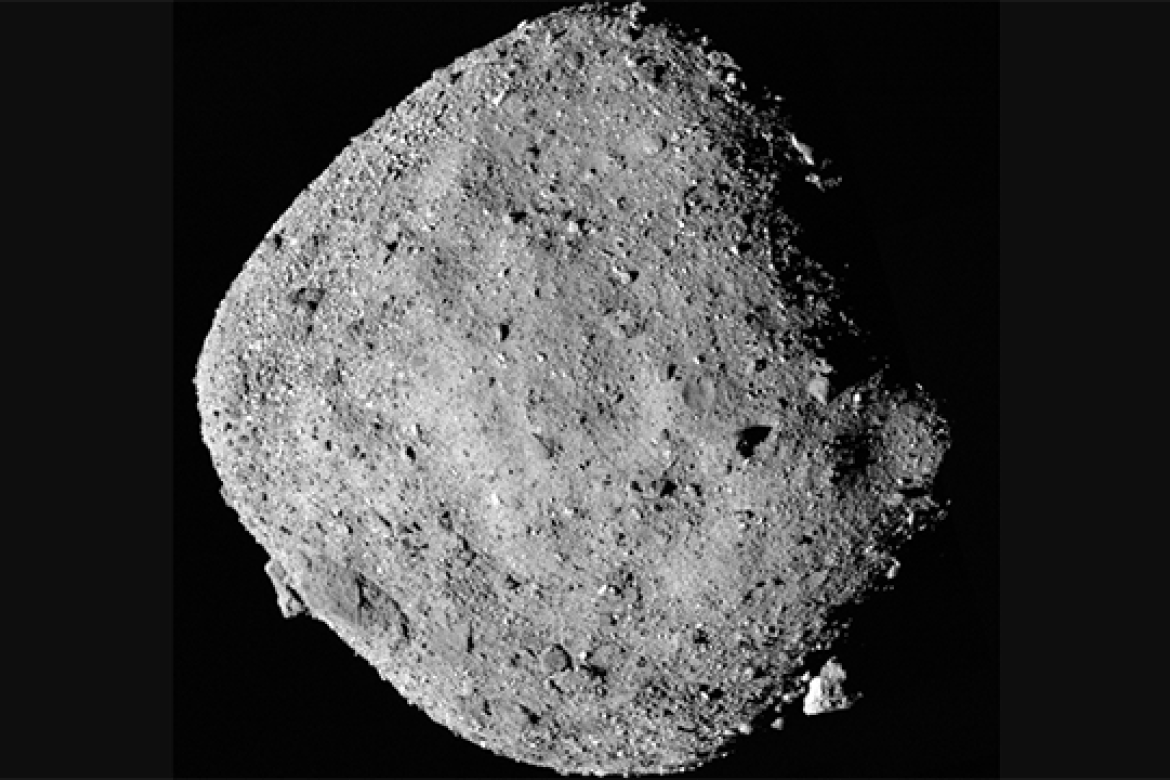The real scoop

NASA has taken a sample from an asteroid more than 200 million miles away. Mount Holyoke’s Thomas Burbine explained why that’s important.
By Keely Sexton
The NASA spacecraft sent to retrieve a sample from an asteroid more than 200 million miles away is on its three-year journey back home. The spacecraft, known as OSIRIS-REx, which stands for “Origins, Spectral Interpretation, Resource Identification, Security, Regolith Explorer,” has successfully taken a sample from asteroid Bennu that will help scientists understand the origins of the solar system and our own planet.
Thomas Burbine, visiting lecturer of astronomy at Mount Holyoke College, explained to Mashable the value of such an enormous undertaking in learning more about our universe.
Having a sample directly from the asteroid will tell us more than we can learn from meteorites in several important ways, he said. One major issue is that carbon-based asteroids are surprisingly fragile and have a tendency to break up in the atmosphere.
“Once the meteorite lands on Earth, it starts getting altered by the atmosphere,” he said. A sample straight from an asteroid avoids this alteration and gives scientists a direct glimpse into the components of the universe.